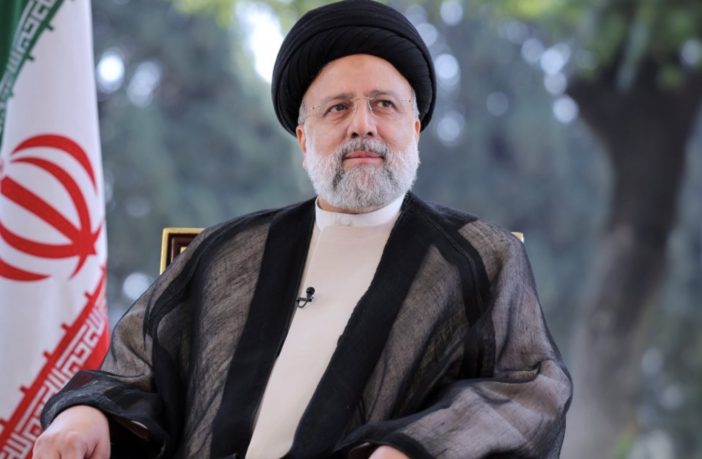Special to the AFRO
By Ericka Alston Buck
In a tragic incident on May 19, Iranian President Ebrahim Raisi and several high-ranking officials, including Foreign Minister Hossein Amirabdollahian, perished in a helicopter crash in the foggy, mountainous region of Iran’s East Azerbaijan province. The crash has sent shockwaves throughout Iran and the international community, intensifying the already complex geopolitical landscape of the Middle East.
Iranians around the world are mourning the death of their president, Ebrahim Raisi, dead at 63 in helicopter crash. (Photo courtesy of the official Website of the President of the Islamic Republic of Iran)
The incident
State media reports that the helicopter carrying Raisi and his entourage went down in a remote area, prompting a strenuous rescue operation that ultimately confirmed the worst. Among those on board were the governor of East Azerbaijan and several bodyguards. The cause of the crash remains under investigation, with initial reports suggesting challenging weather conditions as a potential factor.
Ebrahim Raisi: A controversial figure
Ebrahim Raisi, 63, had a significant and contentious impact on Iran’s domestic and foreign policies. Seen as a protégé of Supreme Leader Ayatollah Ali Khamenei, Raisi’s presidency was marked by hard-line stances and aggressive regional maneuvers. His tenure included escalations in uranium enrichment, bringing Iran closer to developing nuclear weapons capability, and extensive support for militia groups across the Middle East.
Raisi’s foreign policy was assertive and often confrontational. Just last month, under his leadership, Iran launched an unprecedented drone-and-missile attack on Israel amid the ongoing Israel-Hamas conflict. Raisi’s administration also supplied bomb-carrying drones to Russia for use in the Ukraine conflict, further straining relations with Western nations.
Domestically, Raisi’s rule faced significant challenges. Iran has been gripped by widespread protests, particularly over economic hardships and women’s rights. The 2022 death of Mahsa Amini while in police custody sparked a nationwide movement demanding greater freedoms and governmental accountability, leading to a brutal crackdown by authorities.
Reactions from around the world
The international response to Raisi’s death has been mixed. Russia, Iraq, and Qatar have issued formal statements of concern, highlighting Raisi’s role in shaping current Middle Eastern dynamics. Russian President Vladimir Putin expressed condolences, emphasizing the strategic partnership between Tehran and Moscow, particularly in military collaborations.
In contrast, some Western nations have reacted with cautious optimism, viewing Raisi’s departure as a potential opening for diplomatic negotiations on nuclear and regional security issues. However, the immediate impact on Iran’s policies remains uncertain, with First Vice President Mohammad Mokhber stepping in as interim leader until new elections are held.
Looking ahead
Supreme Leader Khamenei has called for national unity and prayers, urging the government to continue its work unabated. Under Iran’s constitution, a presidential election must be held within 50 days to elect Raisi’s successor. The potential candidates and their stances will likely shape the future course of Iran’s domestic and international policies.
Raisi’s death has also reignited discussions about the succession of the Supreme Leader, with speculations around Mojtaba Khamenei, the leader’s son, potentially taking on a more prominent role. This possibility raises concerns about the further entrenchment of a dynastic element within the Iranian theocracy, reminiscent of the monarchy overthrown in the 1979 Islamic Revolution.
The sudden loss of President Ebrahim Raisi marks a significant moment in Iran’s contemporary history. As the nation mourns, the international community watches closely, anticipating how this tragedy will reshape the geopolitical and internal dynamics of a country at the crossroads of numerous critical issues. The upcoming months will be crucial in determining whether Iran will see a continuation of Raisi’s hard-line policies or a shift towards a different political direction.



